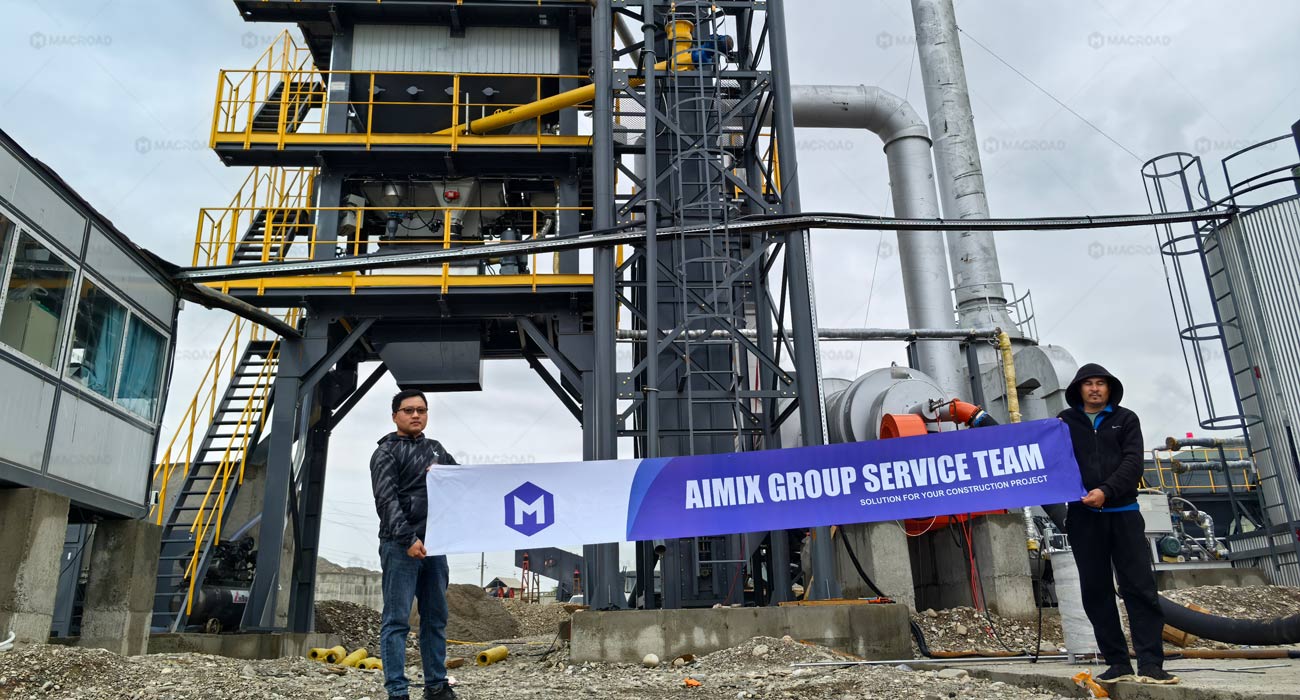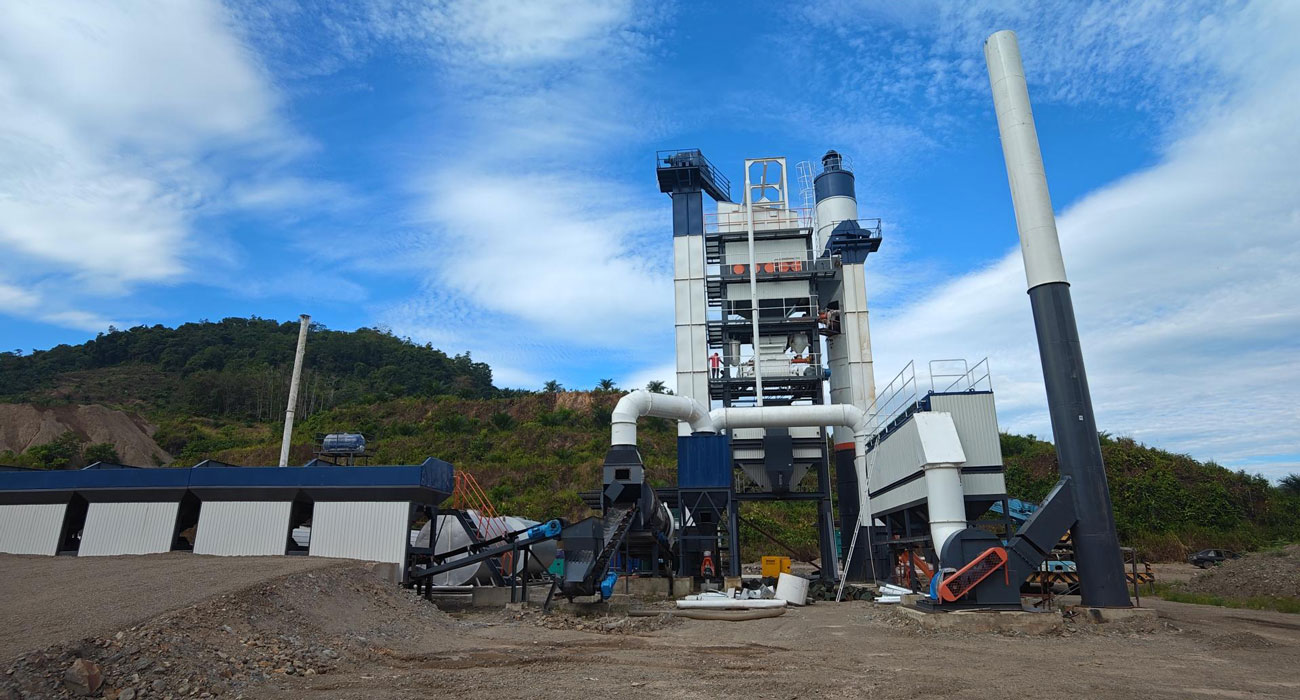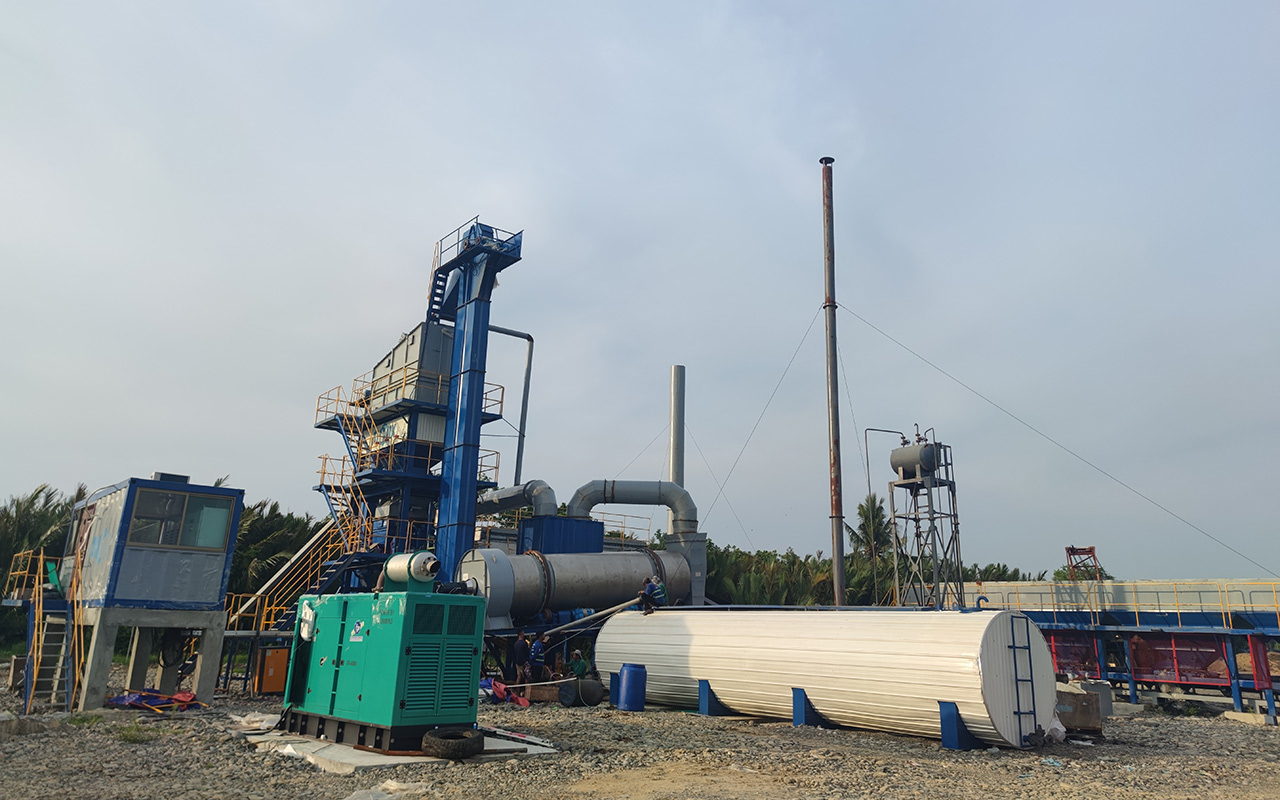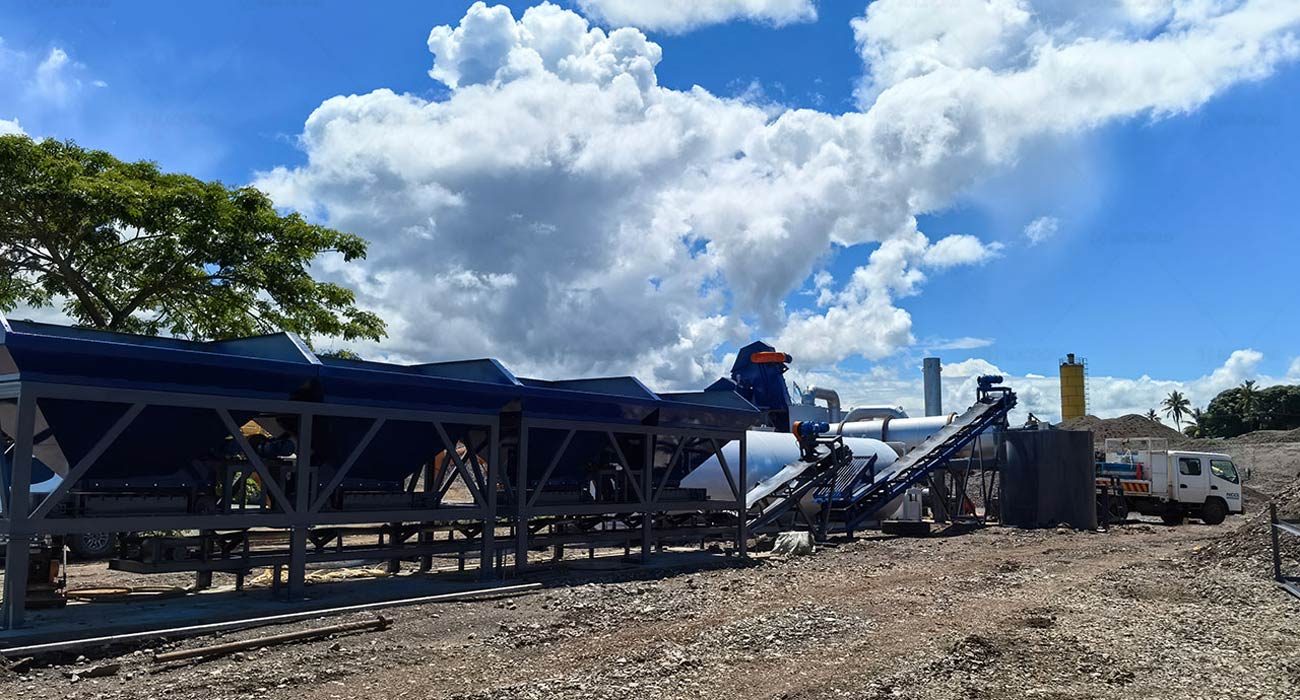Malaysia's road construction landscape is diverse, encompassing urban expressways, rural roads, and coastal roads. Each type of project has distinct performance requirements for asphalt mixtures, necessitating flexibility in production formulas and processes. Asphalt plants in Malaysia must adapt to these varying demands to produce high-quality asphalt mixtures suitable for each specific application. This article explores how these plants can adjust their operations to meet diverse project needs and the implications for raw material management and technical capabilities.
Meeting the High Standards of Urban Expressways
Urban expressways impose stringent requirements on asphalt mixtures, particularly concerning high-temperature stability and skid resistance. To optimize mixtures for these roads, asphalt plants in Malaysia should focus on several key factors.
First, optimizing aggregate gradation is crucial. A well-designed gradation can enhance the stability and performance of the asphalt mixture, ensuring it withstands heavy traffic and temperature fluctuations. Additionally, selecting the appropriate grade of asphalt is essential. Higher-grade asphalt with better performance characteristics can improve the mixture's durability and resistance to deformation.
Incorporating additives is another effective strategy for enhancing the performance of asphalt mixtures for urban expressways. For instance, anti-skid additives can improve surface traction, while polymer modifiers can enhance elasticity and temperature resilience. By carefully adjusting these components, asphalt plants can produce mixtures that meet the demanding standards of urban expressways.

Adjusting Formulas for Rural Road Construction
In contrast to urban expressways, rural roads often prioritize cost-effectiveness while still maintaining adequate durability. Asphalt plants in Malaysia can adjust their production formulas to strike a balance between quality and cost.
One approach is to select more economical aggregates that still meet the necessary performance criteria. By using locally sourced materials, plants can reduce transportation costs and overall expenses. Additionally, adjusting the asphalt content and utilizing lower-grade asphalt can further minimize costs without significantly compromising durability.
The focus on cost does not mean sacrificing quality. Asphalt plants can implement rigorous quality control measures to ensure that the mixtures produced for rural roads meet the required standards. By optimizing production processes and maintaining high-quality raw materials, these plants can deliver cost-effective solutions for rural road construction.

Addressing Challenges for Coastal Roads
Coastal roads present unique challenges due to their exposure to salt erosion from sea breezes. To ensure the longevity and performance of asphalt mixtures in these environments, asphalt plant in Malaysia must take special measures during production.
Incorporating anti-salt corrosion additives into the mixture is essential for enhancing durability against the corrosive effects of salt. Additionally, optimizing the adhesion performance between asphalt and aggregates is crucial to preventing surface degradation. This can involve selecting aggregates that are less susceptible to salt damage and enhancing the bonding properties of the asphalt.
Asphalt plants must also consider the environmental conditions specific to coastal regions during production. This includes ensuring that the mixtures are produced under controlled conditions to maintain the integrity of the additives and overall mixture performance.
Implications for Raw Material Management and Technical Capabilities
The flexible production modes required to meet the diverse needs of various road projects impose specific demands on asphalt plants in Malaysia. Effective raw material reserve management becomes crucial, necessitating a variety of aggregate specifications and multiple types of asphalt to accommodate different project requirements.
Moreover, asphalt plants must enhance their technical R&D capabilities to develop customized formulas tailored to specific projects. This involves investing in research to understand how different materials interact and perform under various conditions, allowing for the creation of optimized mixtures for each application.

Challenges in Production Management and Cost Control
Producing asphalt mixtures for diverse projects introduces complexities in production management and cost control. The need for different formulations and materials increases the complexity of operations, requiring skilled personnel and robust management systems to track inventory and production processes effectively.
To address these challenges, asphalt plants can implement advanced production management software that enables real-time monitoring of inventory levels and production schedules. This technology can streamline operations, ensuring that the right materials are available when needed and reducing downtime associated with production changes.

In conclusion, asphalt plants in Malaysia play a vital role in adapting to the diverse requirements of road construction projects. By adjusting production formulas and processes, these plants can ensure the delivery of high-quality asphalt mixtures tailored to specific needs. Investing in raw material management and technical capabilities will further enhance their ability to meet these challenges while maintaining cost-effectiveness and operational efficiency.